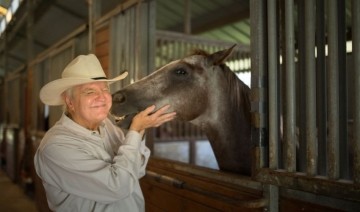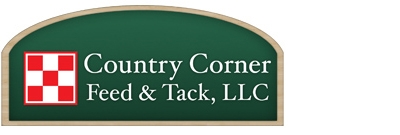{article.name}
Stay Informed
Senior Horse Nutrition

- Share this:
- Share on Facebook
- Pin on Pinterest
- Tweet on Twitter
Just as our own dietary needs change as we get older, so do the dietary needs of our aging horses. Understanding senior horse nutrition can help you choose the best feed for your horse in its golden years, ensuring healthy meals that meet an older horse’s needs.
Is My Horse a Senior?
There is no single set age at which a horse is considered a senior. How each horse ages will be different, and factors such as breed, activity level, general health, and overall lifestyle will affect a horse’s senior age. Most horses start to exhibit senior needs in their late teens or when they reach close to 20 years old, but it is important to be aware of your horse’s individual needs when determining whether or not to change its diet.
A Senior Horse’s Changing Health
As horses age, different health considerations can all have an impact on the animal’s dietary needs. Poor dentition or tooth loss may increase difficulty chewing, which could require softer food or different food compositions. Senior horses, for example, may have difficulty grazing, and therefore will need additional feed to make up for the food they miss by being unable to forage properly.
Older horses also have less efficient digestion both in the hindgut and the small intestine. Because of this, higher quality feed with less protein is often preferred for senior horses, and it should be easily digestible so the horse can absorb the maximum nutrition from every meal.
Senior horses often lose condition and muscle mass. This may be because of decreased activity and a lowered workload, or could be a symptom of Cushing’s Syndrome. In either case, food with a better amino acid balance is more appropriate nutrition for a senior horse and will help keep the animal in good condition. Furthermore, less mobility may make it more difficult for an older horse to reach its feeding trough, particularly if food and water are offered in different areas.
Finally, older horses are more sensitive to stress, which can change their appetite and affect their digestion. Any changes in a horse’s daily routine, as well as changes to their housing, training regimen, climate, or companionship can cause enough stress to put a horse off its feed. Better quality feed will help an older horse adapt to stressful changes and still get proper nutrition.
Tips for Feeding a Senior Horse
Before adjusting an older horse’s feed and forage, it is important to have a thorough veterinary exam. This can determine if the horse has any health conditions that need to be addressed through diet, and the veterinarian will be able to suggest the proper feed composition to meet the animal’s nutritional needs. When feeding a senior horse…
- Offer easily digestible fiber sources, such as beet pulp, alfalfa hay, or rice bran.
- Offer smaller meals more frequently, 3-4 times per day, to promote easier digestion.
- Ensure food is easily accessible with the proper trough style, height, and location.
- Provide regular dental care to keep the horse’s mouth and teeth healthy for easy eating.
- Consider pre- and probiotic supplements to help improve the horse’s digestion.
- Offer mashes or soaked hay cubes for easy eating and additional water.
- Adjust the quantity of each meal to account for the horse’s individual activity.
- Provide plentiful fresh, clean water that isn’t too hot or too cold for the horse’s preferences.
Above all, stay alert to your senior horse’s feeding habits. Any severe or sudden change in eating or food preferences should be followed up quickly, as it could be a sign of different health conditions that may need immediate attention. By understanding your horse’s eating habits and how its nutritional needs will change over the years, you can pinpoint any potential issues more quickly and ensure an older horse gets proper feed and superior nutrition with every meal.
Special Offers
We are constantly adding new specials to our site. Be sure to check back often!

Comments